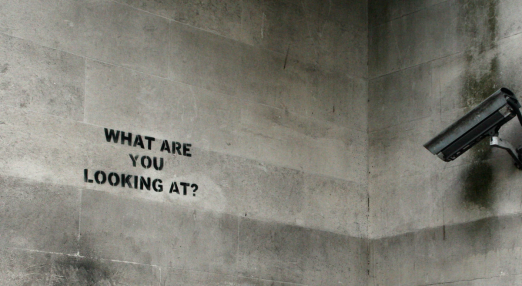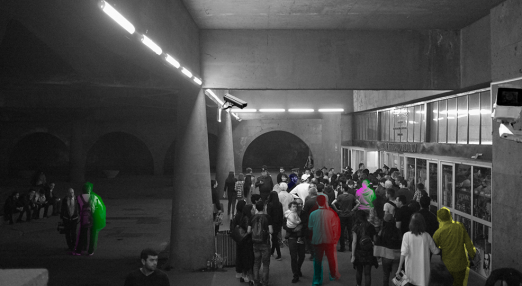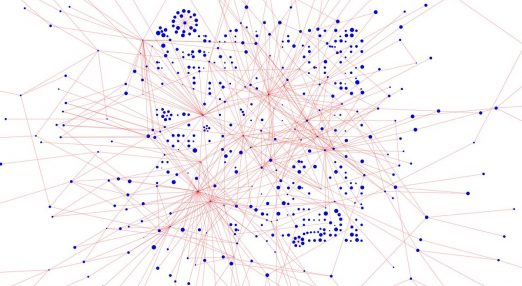The EU Parliament Took a Stance Against AI Mass Surveillance: What are the Global Implications?
The European Parliament's resolution on artificial intelligence in criminal law and its use by the police presents an opportunity for the EU to reconsider its role in the development of such tools, their sale, or use as part of its counter-terrorism and anti-immigration policies abroad.
Filter resources
-

The EU Parliament Took a Stance Against AI Mass Surveillance: What are the Global Implications?
The European Parliament's resolution on artificial intelligence in criminal law and its use by the police presents an opportunity for the EU to reconsider its role in the development of such tools, their sale, or use as part of its counter-terrorism and anti-immigration policies abroad.
Read more
-

Bugs in our pockets?
Now, in Bugs in our Pockets: The Risks of Client-Side Scanning, the authors take a long hard look at the options for mass surveillance via software embedded in people’s devices, as opposed to the current practice of monitoring our communications. Client-side scanning, as the agencies’ new wet dream is called, has a range of possible missions. While Apple and the FBI talked about finding still images of sex abuse, the EU was talking last year about videos and text too, and of targeting terrorism once the argument had been won on child protection.
Read more
-

Facebook Files: How a ban on surveillance advertising can fix Facebook
Facebook is engulfed in the biggest crisis to hit the company since the Cambridge Analytica scandal. The explosive revelations by whistle-blower Frances Haugen, is that Facebook’s leadership refused to make changes that would make their platforms safer because they “put their immense profits before people”.
Read more
-

Celebrating a strong European Parliament stance on AI in law enforcement
On 5 October, following a significant push from across civil society, the European Parliament voted to adopt an important new report on Artificial intelligence in criminal law and its use by the police and judicial authorities in criminal matters by a promising majority of 377 votes in favour, to 248 against. This followed a tense vote earlier as a majority of MEPs opposed all four attempts from the European People's Party (EPP) to remove key fundamental rights provisions from the report.
Read more
-

Serbia withdraws a proposed Biometric Surveillance Bill following national and international pressure
On 23 September, the Serbian Minister of Interior Aleksandar Vulin announced that the Draft Law on Internal Affairs, which contained provisions for legalising a massive biometric video surveillance system, was pulled from the further procedure. This turn of events presents a key victory in SHARE Foundation’s two and a half year-long battle against smart cameras in Belgrade, which were installed by the Ministry of Interior and supplied by Chinese tech giant Huawei.
Read more
-

Why you shouldn’t buy Facebook Ray-Ban smart glasses
Imagine that you are strolling along a tranquil beach in your swimsuit. Suddenly, a stranger walking toward you takes out their phone and starts recording you. You might work up the courage to ask how they dared to invade your privacy, and demand they delete the footage.
Read more
-

The terrifying expansion of Sweden’s state surveillance
For the last couple of years the Swedish parliament has been expanding the surveillance capabilities of law enforcement. After the European Court of Justice struck down Sweden's data retention law, the national parliament passed a replacement that did nothing to address any of the issues criticized in the first law. If telecom providers were to challenge it, which no one has shown any willingness to do, it would most likely be struck down again.
Read more
-

EDRi and 41 human rights organisations call on the European Parliament to reject amendments to AI and criminal law report
EDRi and 41 human rights organisations* call on the members of the European Parliament to vote against the new amendments, which enable discriminatory predictive policing and biometric mass surveillance.
Read more
-

Total surveillance law proposed in Serbia
The public debate on the Draft Law on Internal Affairs has officially introduced into legal procedure provisions for the use of mass biometric surveillance in public spaces in Serbia, advanced technologies equipped with facial recognition software that enable capturing and processing of large amounts of sensitive personal data in real time. EDRi's member the SHARE Foundation has used the opportunity of the Draft Law public debate to submit its legal comments on the provisions regulating mass biometric surveillance in public spaces, demanding from the authorities to declare a moratorium on the use of such technologies and systems in Serbia without delay.
Read more
-

Biometric ‘permission to travel’ scheme in Borders Bill will affect tens of millions of people
The attack on the asylum system proposed by the UK government in the Nationality and Borders Bill has provoked outrage. However, the Bill also includes proposals to introduce an electronic 'permission to travel' scheme that would involve gathering biometric and other data from tens of millions of people. The UK Parliament's Joint Committee on Human Rights (JCHR) is conducting legislative scrutiny on the Bill. EDRi's member Statewatch submitted written observations to the inquiry last week.
Read more
-

Eurodac: Council seeks swift agreement on expanded migrant biometric database
The Slovenian Presidency of the Council is planning to accelerate negotiations on a vast expansion of the Eurodac database, which will hold sensitive data on millions of asylum seekers and migrants in an irregular situation, by 'delinking' the proposed rules from other EU asylum and migration laws under discussion.
Read more
-

Digital Dignity Document Pool
Digital technologies can have a profound effect on our societies, but sufficient attention is rarely given to how certain applications differentiate between, target and experiment on communities at the margins. This document pool gathers resources for those that are interested in learning about and contesting the harms to dignity and equality that arise from uses of technology and data.
Read more
